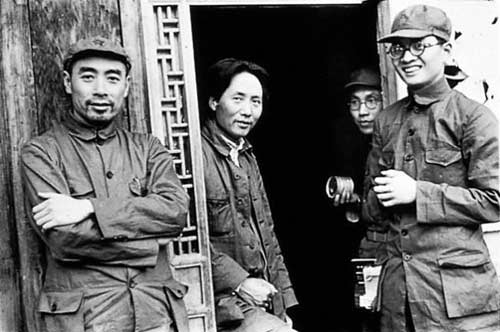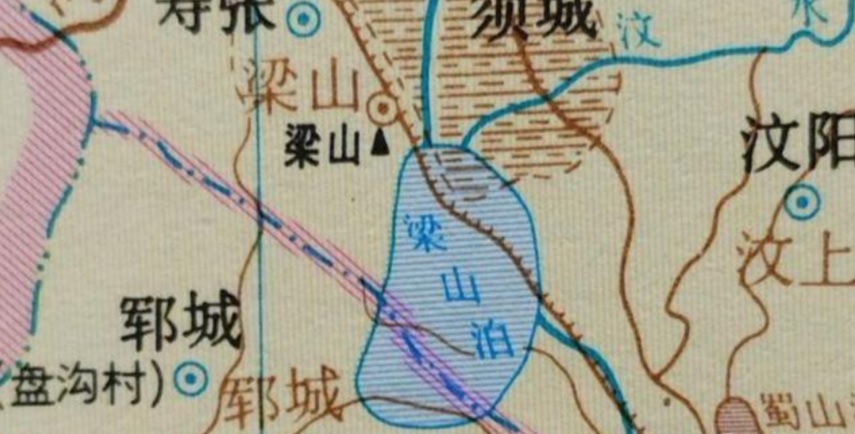After reading The Communist Manifesto, I feel its critique of the bourgeoisie, especially the oppression of the working class, did not match the social reality of old China (which was not even an industrial society; even oppressed European workers lived better than ordinary Chinese then). Why were early Chinese Communists so firmly convinced that communism could save China?
Reply 1:
A friend once argued (though we rarely speak now): Early 20th-century Chinese revolutionaries were first and foremost nationalists and pragmatists, and only then communists—some barely qualified as the latter. His reasoning came from a textbook phrase: “Only socialism can save China.” He emphasized the words “save China”: “save” reflected pragmatism, “China” reflected nationalism. These pragmatists-nationalists chose socialism because they believed it alone could “save China.” Thus, socialism was merely a tool. After victory, contradictions arose: some thought the tool could be discarded, while others insisted the revolution wasn’t over yet.
Reply 2: Early communists also failed.
What truly saved China was Mao Zedong Thought and those who followed Chairman Mao. Without Mao, the earliest communists would have been wiped out by encirclement campaigns. Later, Chinese faith in communism saving China was essentially faith in Mao’s communism. Only under Mao did the Chinese people briefly exist as “human beings” worthy of dignity.
Reply 3:
Party school instructors clarify: Early Chinese Communists did not “firmly believe communism could save China”—textbooks never claim this. The actual line is: “A century of humiliation and struggle proved only Marxism and the Communist Party could save China” (referring to 1949, not 1921). Historically, early members lacked unwavering Marxist faith; conviction grew through practice. The Communist Manifesto‘s critique of capitalist oppression applied globally, including imperialism’s exploitation of colonized nations. Marxism offered a coherent solution, resonating with China’s anti-imperialist patriots. Nationalism and communism were compatible in this context.
Reply 4:
“Only socialism can save China” is a conclusion, not a belief.
Reply 5:
Few truly “believed” initially—they followed what worked. Liang Qichao shifted from bourgeois reformism to republicanism, then to cultural conservatism after witnessing European capitalism’s flaws. Yang Du backed constitutional monarchy, Yuan Shikai’s empire, Sun Yat-sen’s republic, and finally joined the CCP via Zhou Enlai. Li Dazhao promoted democracy/science before embracing Marxism post-1917 Revolution. Chen Duxiu co-founded the CCP but later led a Trotskyist faction. Everyone sought answers to “salvation.” Early CCP was insignificant (53 members at its founding). Most of the 13 First Congress delegates defected, betrayed, or became traitors. Mao’s attendance was almost accidental. Survival depended on evolving into a “steeled vanguard” through relentless struggle.
Why Marxism?
Key was its organizational methodology:
- Vanguard theory: Professional revolutionaries leading the masses.
- Democratic centralism: Centralized discipline, ideological unity.
- Adaptability: Marxism-Leninism fused with Chinese reality (Mao Zedong Thought).
Sacrifice and Survival:
The revolution was brutally costly. Chiang Kai-shek’s purges (“Kill all Xu clan members”) and White Terror massacred 300,000 in Shanghai/Guangzhou (1927), 800,000 in Jiangxi post-Long March. Xu Haidong lost 66 family members; Mao lost six close relatives. Brutality forged unbreakable resolve.
How They Succeeded:
- Organizational Science: Democratic centralism ensured unity. E.g., Bo Gu retained leadership post-Mistakes because loyalty to the Party outweighed personal errors.
- People’s Military: “Party commands the gun.” The Red Army served as fighters, propagandists, and community builders. “Little Red Devils” symbolized its spirit.
- Mass Line: “From the masses, to the masses.” Solving real problems (e.g., adapting guerrilla tactics in N. China plains via crop cover/staggered retention) won popular support.
- Mao’s Core Philosophy:
- Three Magic Weapons: United Front, Armed Struggle, Party Building.
- Three Styles: Theory-practice integration, Close Ties to Masses, Self-Criticism.
- Living Soul: Seek truth from facts; Independence; Mass line.
Conclusion:
China was saved not by dogma, but by organized people guided by a party that:
- Prioritized national liberation (“Save China”).
- Forged steel through sacrifice.
- Embedded itself among peasants/workers.
- Innovated pragmatically (e.g.,地道战, 青纱帐 tactics).
A 1948 letter from Weibei County to the PLA captured this: “You are our hope… Avenge our dead!” The CCP became the “vanguard of China’s people” because it earned trust through service. This legacy endured—e.g., 2023 K1178 train incident where a temp Party branch organized rescue amid typhoon floods.





Goexchangemasterids? Sounds kinda intense, right? It’s a portal where the high rollers play! I’d say jump if you want to make some serious money, but make sure your bank is prepared. You’re playing for the BIG bucks and the biggest wins! Find your inner master: goexchangemasterids.
Hold up, is there a football game called vua sân cỏ on VuaSanCaVN? If so, need to try it. Even if there isn’t, the other games are awesome! Find what’s up: vua sân cỏ